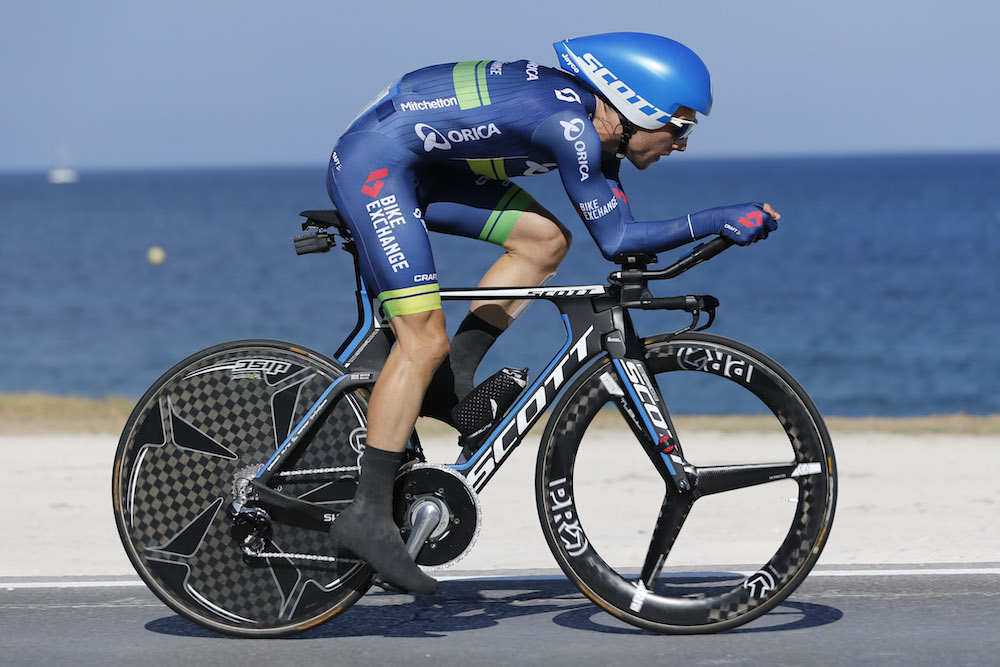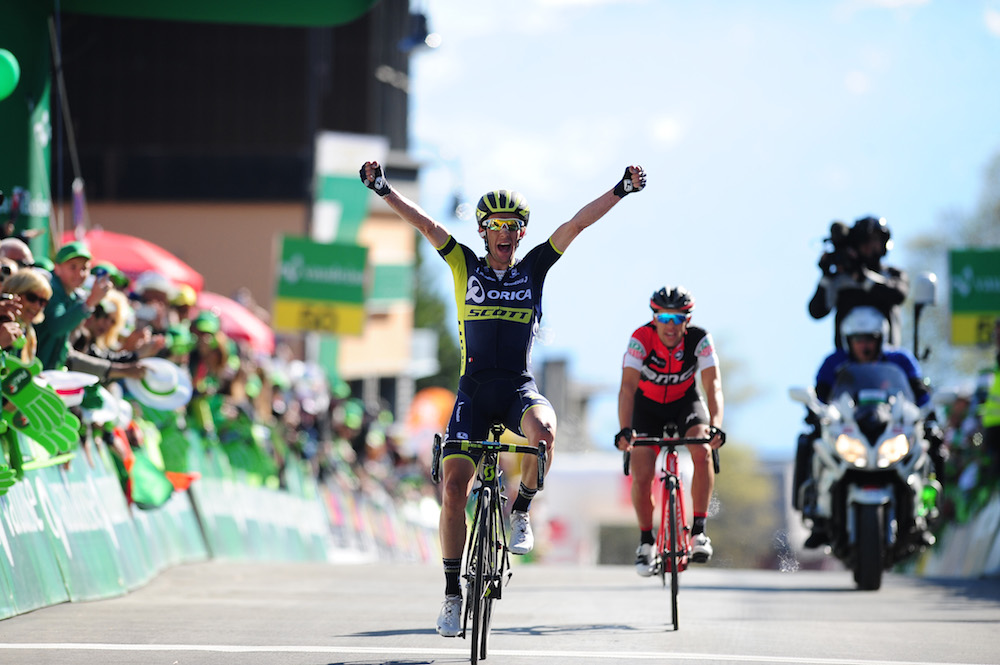Simon Yates admits his time trialling may always be a weakness as he heads to the Tour de France
The British rider will benefit from such few time trial kilometres in this year's Tour, but says there isn't much he can do to improve his ability against the clock

Simon Yates time trials at the 2016 Vuelta a España (Sunada)
The latest race content, interviews, features, reviews and expert buying guides, direct to your inbox!
You are now subscribed
Your newsletter sign-up was successful
British rider Simon Yates has admitted that he’s unlikely to improve his time trialling ability substantially as he prepares to enter the Tour de France, which will potentially see the general classification decided with a time trial in Marseille.
>>> Tour de France 2017 start list
Yates is riding his third Tour this July and his first as a GC leader with hopes of a top-10 finish following his sixth place at last year’s Vuelta a España and a successful start to the season that includes wins at the Tour of Romandie, Paris-Nice and the Gran Premio Miguel Indurain.
Speaking following the time trial at the Critérium du Dauphiné earlier this month Yates said he needed between two and three minutes going into the Tour’s final time trial to be secure of his place on GC.

“A lot of people say to me, ‘you need to work on your TT, you need to work on your TT’," Yates said.
"But I produce the same numbers on my TT bike that a do on my road bike on a mountain, so how do you improve that?
"How do you improve that if you’re already putting out the same numbers? You try and get more aerodynamic.
The latest race content, interviews, features, reviews and expert buying guides, direct to your inbox!
“Well I’ve been to the wind tunnel and I’ve been to the track, I’ve refined my position. Unless I get another 100watts from somewhere it’s going to be difficult to improve it enough to win.
“I’m getting there, I’m only a minute behind [in the Dauphine’s 23.5km TT], it’s not a great performance but it’s not a s*** performance – I can deal with that.”
The Tour’s route includes fewer summit finishes than in recent years and several hard stages with multiple mountains and a descent to the line or a flat finish.
Yates said he expected the parcours to play to his strengths. “Maybe it’s different at the Tour because people aren’t given as much freedom as at other races because even if you’re a minute down no one gives you an inch,” he said.
“But a lot of my races this year I’ve gone from far [away from the finish] and managed to hold on a gain time.
“I can look to do that again with finishes like [the Tour's]; they make a lot of riders ride conservative and reserved and I’ve played off that quite well this year. But maybe in the Tour it’ll be different.
“I would prefer a race like this anyway where it’s a bit less predictable as opposed to a fitness session.”
Having trained as a journalist at Cardiff University I spent eight years working as a business journalist covering everything from social care, to construction to the legal profession and riding my bike at the weekends and evenings. When a friend told me Cycling Weekly was looking for a news editor, I didn't give myself much chance of landing the role, but I did and joined the publication in 2016. Since then I've covered Tours de France, World Championships, hour records, spring classics and races in the Middle East. On top of that, since becoming features editor in 2017 I've also been lucky enough to get myself sent to ride my bike for magazine pieces in Portugal and across the UK. They've all been fun but I have an enduring passion for covering the national track championships. It might not be the most glamorous but it's got a real community feeling to it.